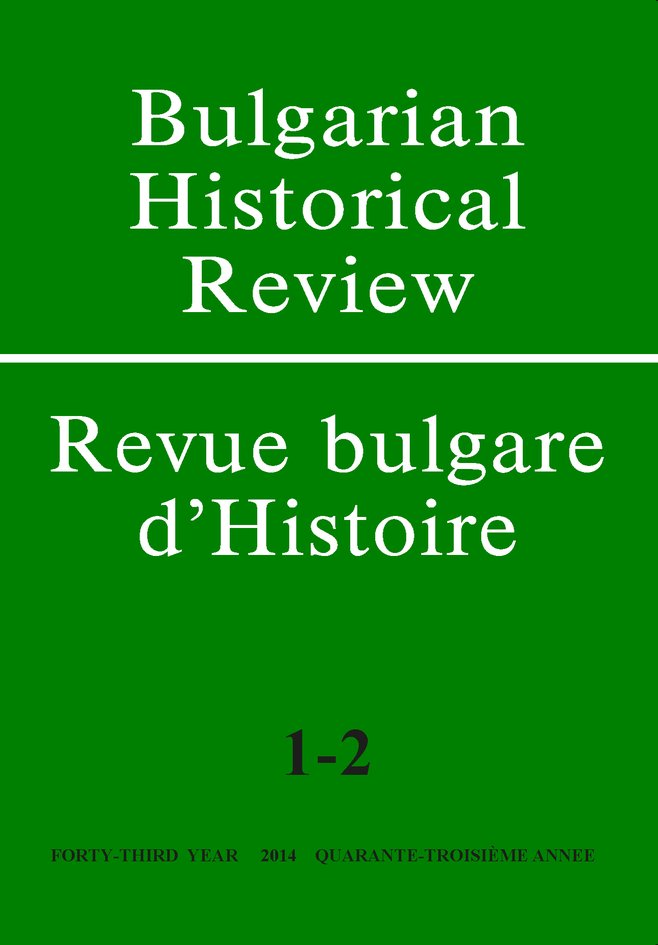Bulgarian Historical Review
Edition of the Institute for Historical Studies at the BAS
ETHICS STATEMENT
of Bulgarian Historical Review / Revue Bulgare d’Histoire,
published by the Institute for Historical Research - BAS
This Ethics Statement regulates the ethical standards to which all participants in the process of publishing Bulgarian Historical Review journal should adhere. Compliance with accepted international standards of publication ethics is an essential part of the policy of the editorial board and aims to maintain the high quality of the journal. All participants in the publishing process are expected to adhere strictly to ethical conduct norms and fulfil their engagements in accordance with the principles of professional ethics in the following main directions.
Duties of authors
All submitted manuscripts should be original studies that have not been published or submitted for consideration in other journals. Submitting an article to more than one journal at the same time is considered unethical and unacceptable.
Authors should be correct in terms of data, results, methods, and publishing rules. They must be unbiased and objective in analyzing and interpreting historical sources, avoiding any falsification of data, including manipulation of data to prove a pre-formulated hypothesis.
An obligatory requirement for authors is to respect intellectual property and historiographic accruals, to prevent plagiarism in any form. They must strictly adhere to the requirements for scientific content and impartiality, and should respect linguistic norms.
Authors should promptly respond to editors' queries regarding primary data, textual clarifications, or copyrights, comply with the comments and instructions made by reviewers (if any), and resubmit their manuscript after corrections have been made.
Sources of funding for research reported in the article should be duly acknowledged.
Duties and Responsibilities of Reviewers
The reviewer must be one of the most competent scientists in the relevant scientific field. He / she is obliged to inform the editor in cases where he / she is insufficiently qualified to review a given scientific material or is unable to make a sufficiently accurate review.
It is unacceptable to delay the review once the reviewer has taken up the engagement.
The reviewer is required to assess the submitted manuscript by scientific criteria. He/She clearly expresses his/her opinion and supports it with objective arguments and constructive criticism.
The reviewer is obliged to monitor the correctness of quotes. He/She must promptly notify the editorial board in cases of incorrect citation or noticed duplication of parts of the material with an article already published.
Any manuscript to be reviewed should be regarded as a confidential document. It is unacceptable for the reviewer to discuss or display it to third parties except when authorized by the editor of the journal or to use the ideas and information contained therein in his / her own interest.
Obligations and Responsibilities of Editors
The editorial board is obliged to organize a quick review of each submitted material and make a clear statement communicating it to the author in the quickest possible way.
The editorial board makes the final conclusion about the merits and shortcomings of a manuscript. It is obliged to inform the author of all the weaknesses and mistakes without the removal and correction of which the article will not be published. These include technical deficiencies, factual and methodological errors, as well as incorrect, inadequate or unethical citation, etc.
Information or ideas acquired during the evaluation process of the material submitted for publication are strictly confidential and editors cannot use them in their own interest.
The Editor-in-Chief should take appropriate measures when ethics related complaints are submitted regarding a manuscript presented for publication or a text already published.
It is editors' obligation to actively seek feedback from authors and reviewers to improve the editing process.

